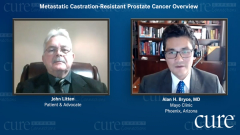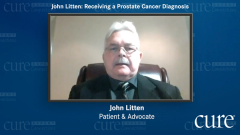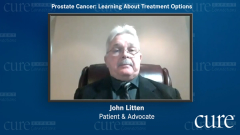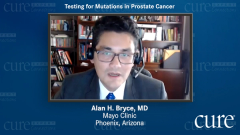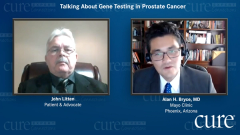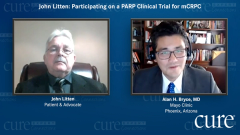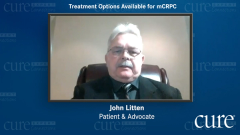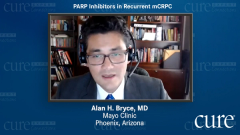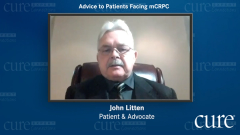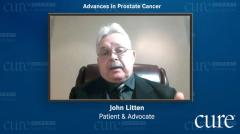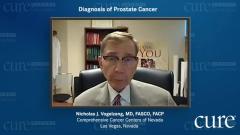
Testing for Mutations in Prostate Cancer
Episodes in this series

Alan H. Bryce, M.D.: At this point, we want to pivot a little to a detail that ultimately became important in your prostate cancer management. The detail that we think is still underappreciated in terms of how most men are managed and how prostate cancer care is changing in 2020 is genetic testing.
For the patients listening online, genetic testing of cancer involves two different types of tests. All of us have the genes that we inherited from our parents, and these are the genes we could potentially pass on to our children. Cancer by definition is a genetic disease where your healthy cells have mutated to become cancerous cells. What that means, is once you have a cancer in your body, there are two different genetic populations. There are the genetics you inherited and the genetics that the cancer developed. In the last several years in cancer we’ve learned that by looking at the genetics you inherit and the genetics that the cancer has, we can sometimes find treatment options for patients. There can be certain drugs, certain therapies that target certain genetic signatures. It becomes a key question for every patient to talk to their oncologist about when and how we should consider genetic testing.
When we talk about the inherited genes, we’re talking about germline testing. That’s what we call the genes you get from your parents. Of course, half the genes you get from your parents you end up passing on to your children. The other half comes from the mom, since in this case we’re talking about men with prostate cancer. At this point, there are over 50 genes that the American Society of Human Genetics recognizes as being associated with family cancer syndromes.
One of the key things we emphasize when we talk about family cancer syndromes is that you often don’t know that you have it. Carrying a gene doesn’t mean that everybody is going to get cancer. It just means they’re more likely to. Back in the day when families were large and everyone had several siblings over several generations, then taking a family history was probably enough to figure out which families were at risk. But in the modern era, when families have two kids or they’re rather small, maybe someone is an orphan and an only child, you can’t rely on family history to figure out who needs to be tested.
It is now a recommendation in the United States by the National Comprehensive Cancer Network, by the American Urological Association, and by the American Society of Clinical Oncology that all men with advanced prostate cancer should have germline genetic testing. That’s because there’s at least a 5% and maybe up to a 15% chance that every male with advanced prostate cancer is going to carry a family cancer risk syndrome.
For men with metastatic disease, we also test the tumor. The most common gene we find mutated in prostate cancer is 1 called BRCA. It comes in two varieties, BRCA1 and BRCA2. The key point here is most people think of BRCA as being associated with breast and ovarian cancer, but it’s also associated with prostate and pancreatic cancers. It’s not specific to women. It affects men and women alike. When there is a BRCA mutation, research—including the trials that John has gone on—has proven that we can use a class of therapies called PARP inhibitors to attack those cancers. These therapies can be both highly effective and very well tolerated in terms of adverse effects and therefore extend a man’s life meaningfully with very manageable adverse effects.
This is a part of the journey when we want to talk about it a bit more, because I believe in talking to patients who come to my practice and looking at notes from outside, that the testing is probably not being done enough. We need to get to the point where every man is having this testing done.
Transcript Edited for Clarity







